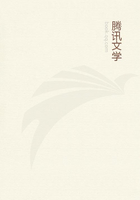
第105章 BENTHAM'S DOCTRINE(27)
37.It is not worth while to consider this at length;but I give the following conjectural account of the list as it appears in the Morals and Legislation above.In classifying pain or pleasure,Bentham is,I think,following the clue suggested by his 'sanctions'.He is realy classifying according to their causes or the way in which they are 'annexed'.Thus pleasure may or may not be dependent upon other persons,or if upon other persons,may be indirectly or directly caused by their pleasures or pains.Pleasures not caused by persons correspond to the 'physical sanction',and are those (1)of the 'senses',(2)of wealth,i.e.caused by the possession of things,and (3)of 'skill',i.e.caused by our ability to use things.Pleasures caused by persons indirectly correspond first to the 'popular or moral sanction,'and are pleasures (4)of 'amity',caused by the goodwill of individuals,and (5)of a 'good name',caused by the goodwill of people in general;secondly,to 'political sanction,'namely (6)pleasures of 'power';and thirdly,to the 'religious sanction,'or (7)pleasures of 'piety'.All these are 'self-regarding pleasures.'The pleasures caused directly by the pleasures of others are those (8)of 'benevolence',and (9)of malevolence.We then have what is really a cross division of classes of 'deriviative'pleasures;these being due to (10)memory,(11)imagination,(12)expectation,(13)association.To each class of pleasures corresponds a class of pains,except that there are no pains corresponding to the pleasures of wealth or power.We have,however,a general class of pains of 'privation',which might include pairs of poverty or weakness:and to these are opposed (14)pleasures of 'relief',i.e.of the privation of pains.In the Table,as separately published,Bentham modified this by dividing pleasures of 'curiosity'for pleasures of 'skill',by suppressing pleasures of relief and pains of privation;and by adding,as a class of 'pains'without corresponding pleasures,pains (1)of labour,(2)of 'death,and bodily pains in general.'These changes seem to have been introduced in the course of writing his Introduction,where they are partly assumed.Another class is added to include all classes of 'self-regarding pleasures or pains.'He is trying to give a list of all 'synomyms'for various pains and pleasures,and has therefore to admit classes corresponding to general names which include other classes.
38.Works,i,210,where he speaks of pleasures of the 'ball-rooms',the 'theatre',and the 'fine arts'as derivable from the 'simple and elementary'pleasures.
39.Works,('Morals and Legislation'),i,22etc.
40.Ibid.i,33.
41.Morals and Legislation,ch.vii,to xi.
42.Works,('Morals and Legislation'),i,46.
43.Ibid.48.
44.Works,('Morals and Legislation'),i,56.
45.Ibid.56.
46.Works,('Morals and Legislation'),i,60.
47.Ibid.i,62.
48.Ibid.i,65.
49.These are the two classes of 'springs of action'omitted in the Table.
50.Works,('Morals and Legislation'),i,68.
51.Here Bentham lays down the rule that punishment should rise with the strength of the temptation,a theory which leads to some curious casuistical problems.He does not fully discuss,and I cannot here consider,them.Iwill only note that it may conceivably be necessary to increase the severity of punishment,instead of removing the temptation or strengthening the preventive action.If so,the law becomes immoral in the sense of punishing more severly as the crime has more moral excuse.This was often true of the old criminal law,which punished offences cruelly because it had no effective system of police.Bentham would of course have agreed that the principle in this case was a bad one.